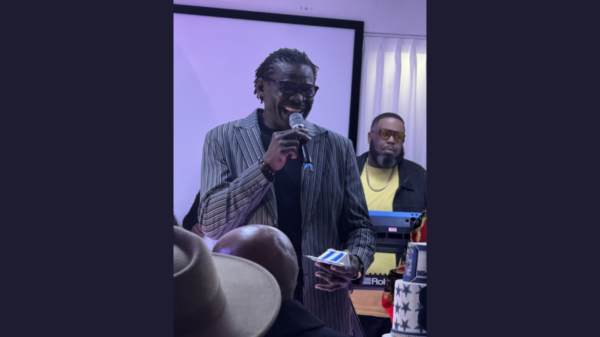Sixty years ago, Martin Luther King, Jr. delivered the iconic “I Have a Dream” speech on the steps of the Lincoln Memorial in Washington, D.C.
What King aimed to accomplish with the March on Washington for Jobs and Freedom, was to advocate for the civil and economic rights of African Americans.
On Aug. 26 this year, Rev. Al Sharpton, Arndrea Waters King and Martin Luther King III, joined by other civil rights activists, will commemorate the 60th anniversary of that 1963 march with a program at that same Lincoln Memorial, followed by a march through the streets of D.C.
They will bring together 60 national organizations across races, cultures, and generations as partners of the 60th anniversary of this historic event. The March will be co-chaired by AAJC, Anti-Defamation League, Lawyers’ Committee for Civil Rights Under Law, The Leadership Conference on Civil and Human Rights, Legal Defense Fund, NAACP, National Coalition on Black Civic Participation, National Council of Negro Women (NCNW), National Urban League and UNIDOS.
In his speech, King predicted that the march “will go down in history as the greatest demonstration for freedom in the history of our nation.” Yet, in May 1968, while interviewed by NBC News, King said his “dream had turned into a nightmare” and that there was much more work needed to be done.
Sharpton and other organizers see the Aug. 26 commemoration as part of that ongoing struggle for justice.
In an article written for Word In Black, Sharpton, speaking on today’s threats to civil rights gains, said, “We as a country are at a crossroads; do we continue on the path of progress, or do we revert back to the dark days? The vast majority are united, and we will raise our voices in unison for a clarion call for fairness and justice at the March on Washington once again.”
The 1963 march, organized by labor unionist and civil rights activist A. Philip Randolph and social movements leader Bayard Rustin, who built an alliance of civil rights, labor, and religious organizations, united under “jobs and freedom.” Around 250,000 people attended the march, among which 75-80% were Black.
King Jr. said a century ago, president Abraham Lincoln signed the Emancipation Proclamation, a moment in history that marked the beginning of freedom for the slaves “who had been seared in the flames of withering injustice.”
Sharpton told The Guardian’s Jonathan Freedland that the march was held a hundred years after the American Civil War to “address the unfulfilled promises of America that was made by Abe Lincoln.” It was about the people who sacrificed their lives for the “union” and still remained unequal, compared to other citizens of the country.
He echoes King Jr.’s sentiments, who said in his speech that even a hundred years later, the lives of former slaves are “still badly crippled by the manacles of segregation and the chains of discrimination.” In addition, they were subject to a life of poverty, resembling an exile in their “own land.”
Sharpton was seven or eight years old and his parents, who faced segregation, were “excited” to tell him about the march.
That was 1963. In 2023, the Economic Policy Institute released a report that said ever since the march took place for jobs and freedom, not much progress has been made with regards to the “full equitable” integration of Black Americans into the American economy.
Key findings of the report include that post-civil rights era legislation has failed to address the “widening racial disparities” when it comes to Black Americans’ wages, wealth and homeownership. Moreover, race-neutral legislation that aimed to alleviate the struggles of low and middle-income families has “mitigated racial economic disparities slightly,” the study says. Moreover, Black unemployment has exceeded 10% at times while white employment has not, even during economically turbulent times.
“We are still unequal in terms of the economic conditions,” Sharpton told Freedland. “We’ve seen a rise in hate crimes against Blacks, against Jews, against LGBTQ, against those that are of Latino origins.”
He also mentioned mass shootings in relation to gun violence and the erosion in people’s rights to vote.

You must be logged in to post a comment Login